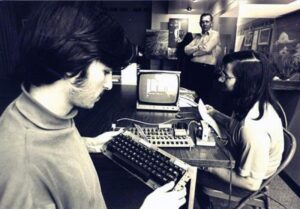Apple Inc. has officially entered the elite $4 trillion market capitalization club, becoming the third company in history to reach this valuation milestone — following Nvidia and Microsoft earlier this year. The achievement marks a defining moment for the tech giant, driven by robust demand for its latest flagship device, the iPhone 17.
On Tuesday, the company’s stock surged to approximately $270 in early trading, briefly pushing its market value past the $4 trillion threshold. The rally was fueled by impressive sales figures for the iPhone 17 series, which outperformed its predecessor by 14% in the first 10 days post-launch in both the United States and China, according to Counterpoint Research.
While its year-to-date stock growth stands at around 10%, it trails behind Nvidia’s 40% and Microsoft’s 29% gains. Analysts attribute this disparity to the firm’s slower entry into the artificial intelligence space. Nevertheless, consistent performance across core product lines — including iPhone, Mac, and Services — has reinforced investor confidence. In its fiscal third quarter, the Cupertino-based company reported $94.04 billion in revenue, reflecting a 10% increase from the previous year.
Dan Ives, a tech analyst at Wedbush Securities, described the milestone as a “watershed moment” for the broader tech industry. “Despite lagging in AI, this rise to $4 trillion underscores the strength of its consumer ecosystem,” he told Bloomberg.
From Garage to Global Giant: The Origins of Apple
The journey began on April 1, 1976, when Steve Jobs, Steve Wozniak, and Ronald Wayne founded Apple Computer Co. in Cupertino, California. Their first product, the Apple I, was built in Jobs’ parents’ garage and sold as a DIY kit to hobbyists. The company was officially incorporated in 1977 and quickly gained traction with the release of the Apple II, one of the first highly successful mass-produced personal computers.

Throughout the 1980s and 1990s, the brand introduced groundbreaking products like the Macintosh, which revolutionized user interfaces with its graphical design. However, it faced turbulent times in the mid-1990s, struggling with declining sales and internal leadership conflicts. It wasn’t until Steve Jobs returned in 1997 that the dramatic turnaround began, launching the iMac, iPod, and eventually the iPhone — the product that would redefine its future.
Tim Cook: The Quiet Architect of Modern Success
When Steve Jobs stepped down as CEO in 2011 due to health issues, Tim Cook was appointed as his successor. Cook, who had previously served as Chief Operating Officer, was known for his mastery of supply chain logistics and operational efficiency.
Born in Robertsdale, Alabama, Cook grew up in a working-class family and earned an MBA from Duke University. His early career included stints at IBM, Intelligent Electronics, and Compaq before joining the company in 1998. Under his leadership, the firm expanded its global footprint, streamlined manufacturing, and maintained high profit margins even as competition intensified.
One of Cook’s most notable achievements has been his ability to preserve brand identity while steering it into new markets. He oversaw the launch of the Apple Watch, AirPods, and the transition to Apple Silicon chips. Cook also emphasized privacy, sustainability, and accessibility — values that have become central to the corporate ethos.
Despite criticism for being less visionary than Jobs, Cook’s steady hand has guided the company to unprecedented financial heights. He is known for his calm demeanor, collaborative leadership style, and strategic foresight. “Don’t let the noise of others’ opinions drown out your inner voice,” Cook once said — a mantra that reflects his approach to leadership.
What’s Next for the Tech Giant?
As the firm prepares to release its fourth-quarter earnings report, investors are watching closely for signs of continued momentum. Its delayed rollout of AI features — including enhancements to Siri and integration with ChatGPT — is expected to debut next year, potentially opening new revenue streams.
The climb to $4 trillion is more than a financial milestone; it’s a testament to decades of innovation, resilience, and strategic evolution. From a humble garage startup to one of the most valuable companies on Earth, the story continues to inspire — and under Tim Cook’s leadership, its next chapter may be just as transformative.
……………………………….
With additional input from Entrepreneur
Read more related news here: https://thepublicpurview.com/category/tech/
For climate-related stories, visit: The Green Post







 Today's E-Paper
Today's E-Paper